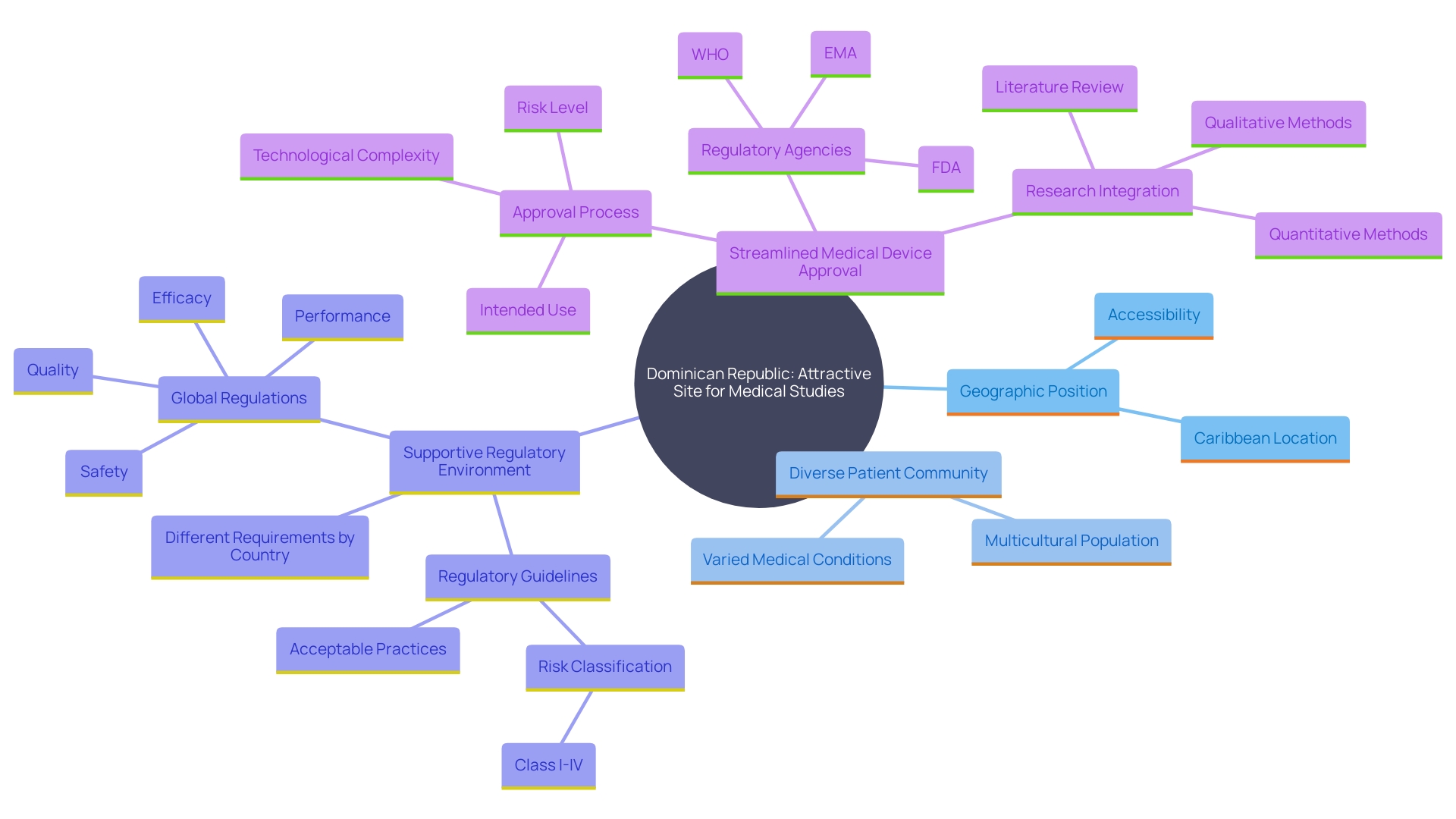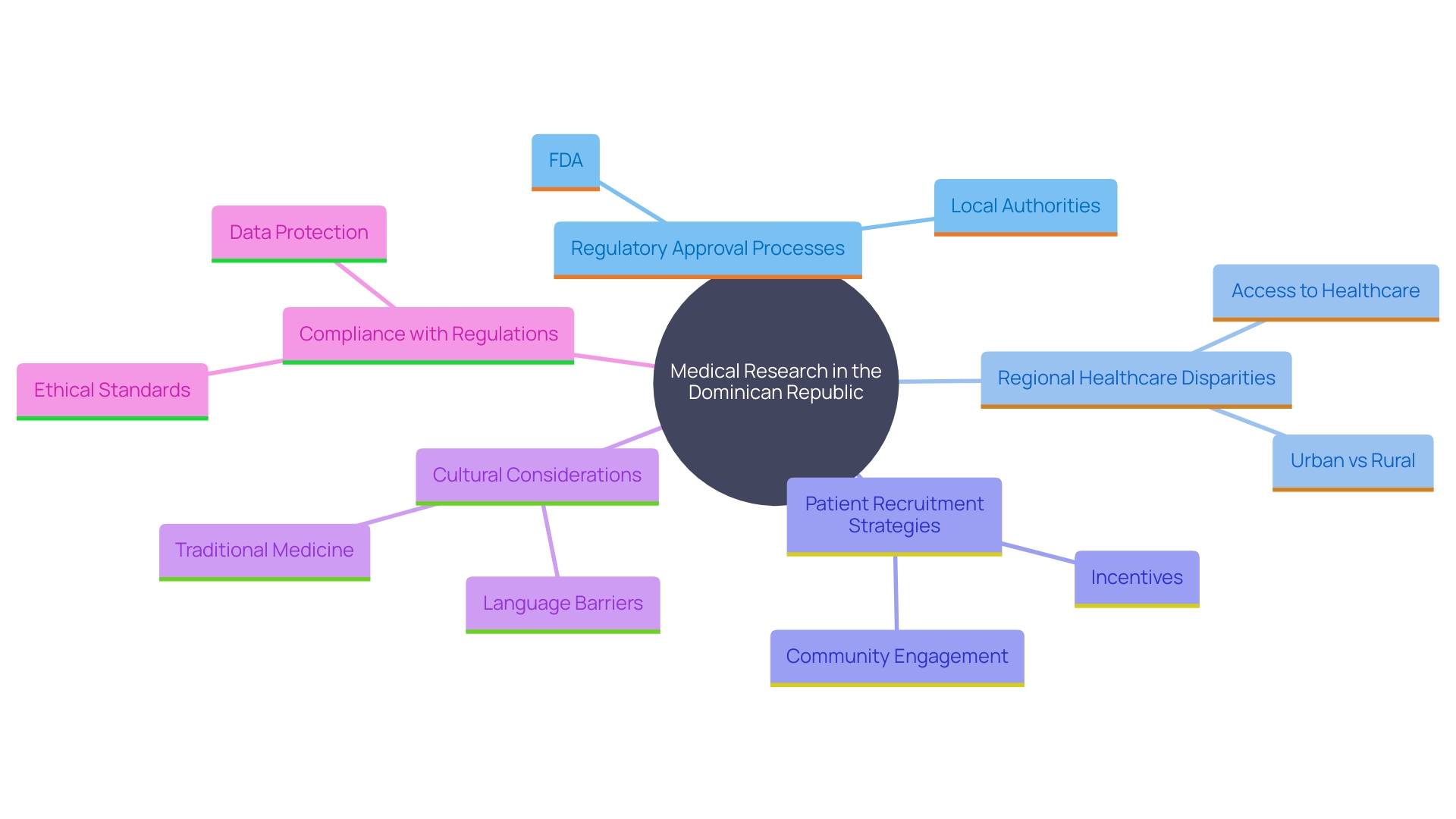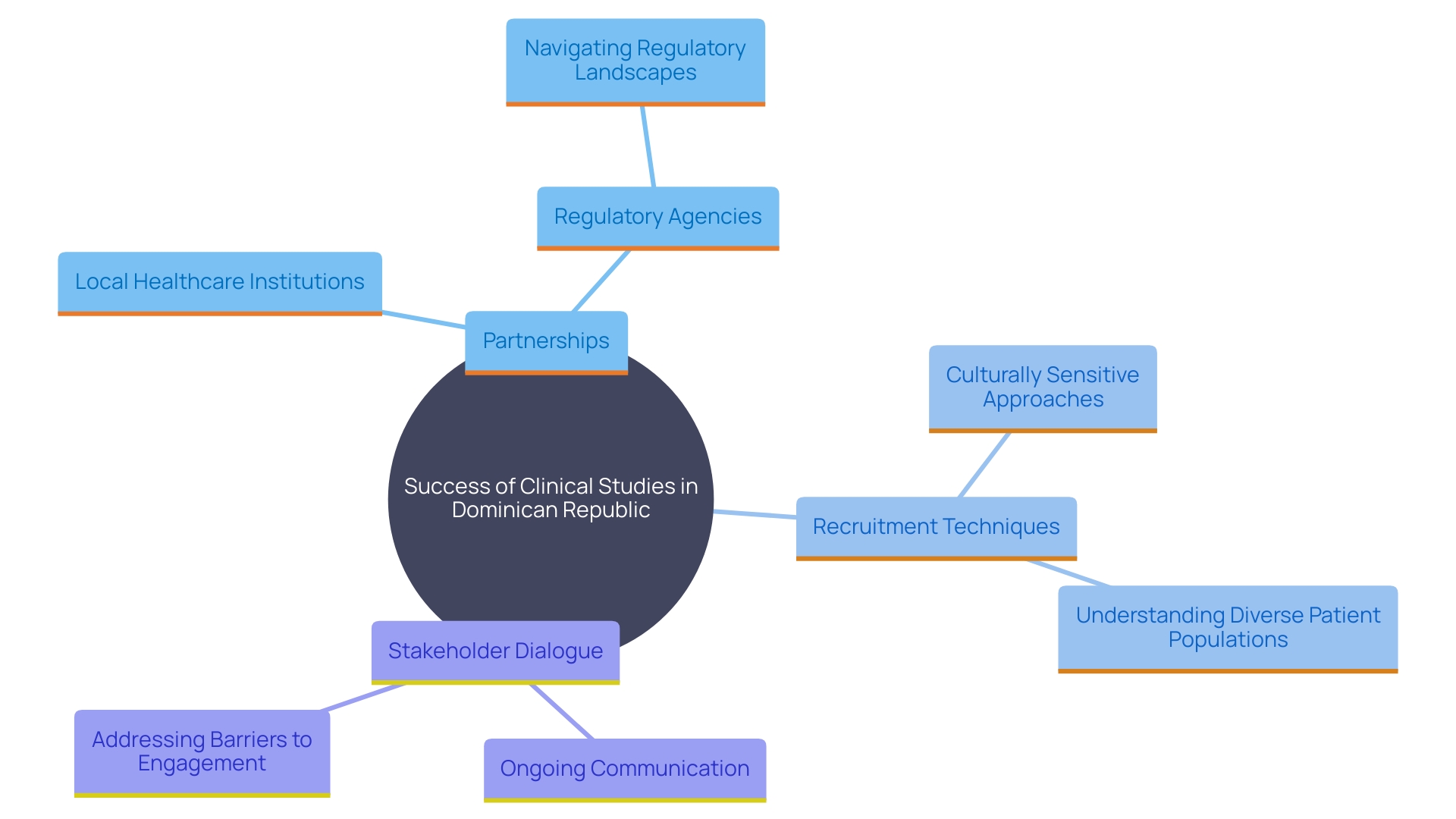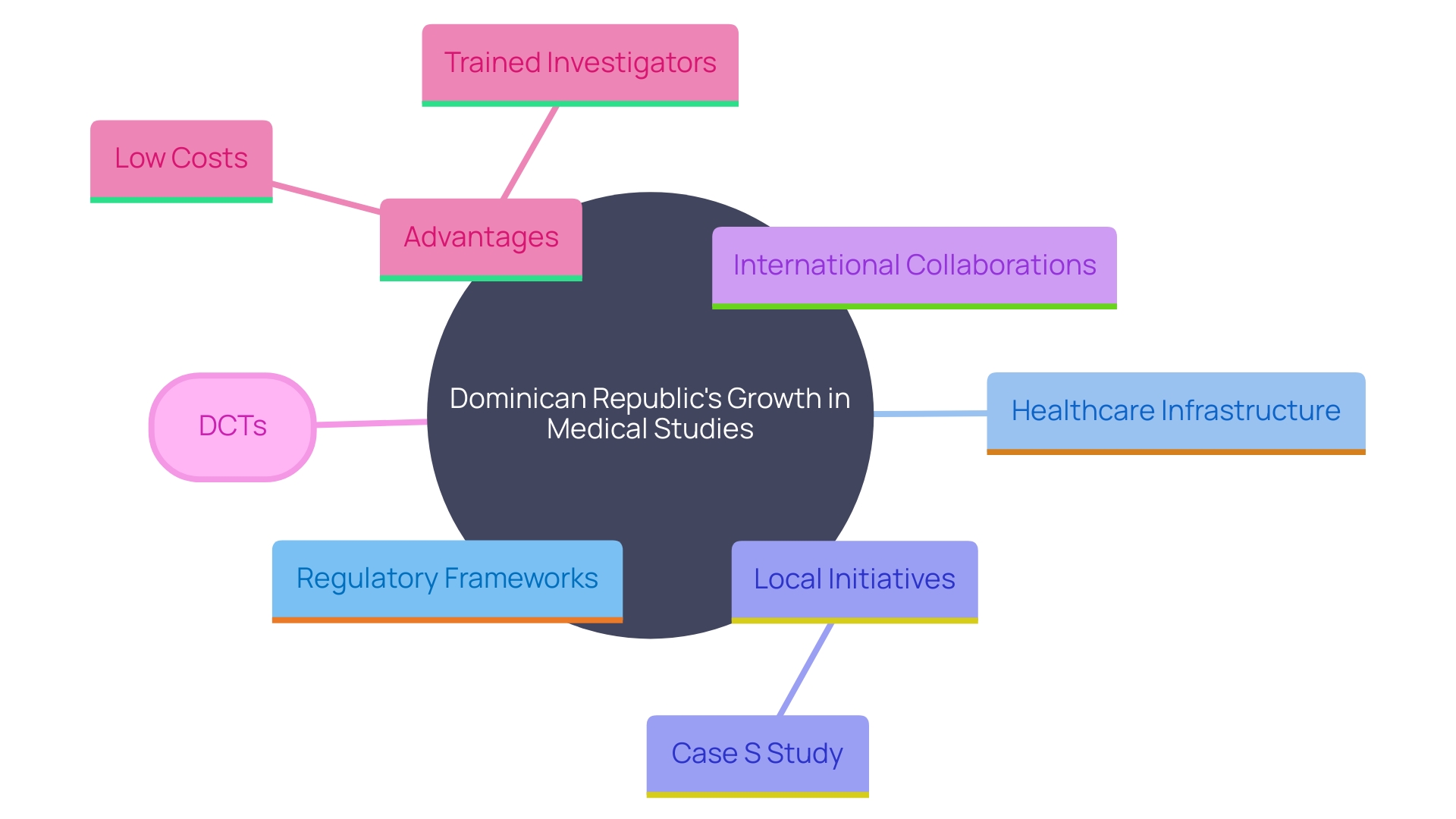Introduction
The Dominican Republic has emerged as a prominent location for conducting clinical research, particularly in the field of medical devices. Its strategic geographic position, combined with a robust healthcare infrastructure, makes it an ideal venue for clinical trials. The diverse patient population in the Dominican Republic enhances the generalizability of clinical trial results, ensuring applicability across various demographics.
Additionally, the country's supportive regulatory environment fosters innovation and expedites the approval process for medical devices, allowing for quicker transitions from trial phases to market readiness. This article explores the unique advantages offered by the Dominican Republic for medical device clinical trials, delves into the regulatory framework and ethical oversight, examines the healthcare infrastructure and professional expertise, addresses challenges and considerations, and outlines strategies for successful clinical trials in this promising locale.
Why Choose the Dominican Republic for Medical Device Clinical Trials
The Dominican nation has emerged as a significant location for medical studies, especially in the area of medical instruments. The nation’s strategic geographic position and growing healthcare framework make it an ideal location for medical studies. The varied patient community in the Dominican region greatly improves the applicability of research findings. This diversity is crucial, as it ensures that the findings are applicable across various demographics, which is often a challenge in larger, less diverse countries. Moreover, the Dominican nation provides a supportive regulatory environment that encourages innovation and accelerates the approval process for medical devices. The capability to optimize these procedures is essential in medical studies, as it allows faster shifts from testing stages to market preparedness, aiding both investigators and patients. Recent information indicates that smaller nations such as the Dominican nation, with their distinct benefits in recruitment and involvement, are becoming more appealing for carrying out medical studies, highlighting the worldwide transition towards more inclusive and representative research methodologies.

Regulatory Framework and Ethical Oversight
The regulatory framework overseeing clinical studies in the Dominican Republic is managed by the Ministry of Public Health and Social Assistance. This body ensures that all studies, particularly those involving medical devices, adhere to internationally recognized guidelines, thus maintaining high standards of ethics and transparency. Ethical oversight is strongly managed by institutional review boards (IRBs), which play a crucial role in assessing both the scientific value and ethical aspects of proposed studies. This framework not only protects participants but also fosters trust among all parties involved in the process. The Dominican nation's dedication to harmonizing its regulations with international benchmarks is an important move towards promoting medical studies while safeguarding participant rights and guaranteeing ethical practices in clinical investigations.
Healthcare Infrastructure and Professional Expertise
The Dominican Republic has made substantial investments in its healthcare infrastructure, encompassing hospitals, clinics, and specialized study centers. These facilities are not only outfitted with advanced technology but are also staffed by highly skilled professionals, including clinicians and researchers proficient in medical device trials. This strategic advancement guarantees that medical investigations are carried out effectively and in accordance with established protocols and regulatory requirements. The expansion of the health workforce and the integration of technologies such as telemedicine and mobile health are pivotal. These measures, bolstered by national-level support, aim to distribute resources equitably and sustain progress over time. This approach has been exemplified in countries like Uruguay, which boasts a well-established health information system, enabling further implementation of such strategies. The Dominican nation's dedication to improving its healthcare infrastructure places it in a strong position for carrying out first-in-human and early-feasibility studies, thus making a substantial contribution to medical progress in the region.
Challenges and Considerations for Clinical Research in the Dominican Republic
The Dominican Republic presents a unique landscape for medical research, offering both significant advantages and notable challenges. While the nation is increasingly acknowledged for its potential in medical studies, sponsors and researchers must skillfully navigate various challenges to guarantee successful research results.
Initially, the regulatory approval procedure may experience setbacks, affecting the overall schedule of medical studies. This variability necessitates a thorough understanding of the local regulatory environment and proactive engagement with regulatory bodies. Furthermore, the healthcare system in the Dominican Republic differs considerably across various regions, which can influence the consistency of medical practices and patient care standards.
Patient recruitment is another critical area that requires strategic planning. Recruitment in underserved regions and among underrepresented groups can be particularly challenging. To mitigate these issues, leveraging digital technology and social media platforms can enhance patient engagement and streamline the recruitment process. This method aligns with worldwide trends in decentralized research, which emphasize meeting individuals where they are, whether at home or in research deserts.
Understanding and respecting local cultural factors is paramount. Cultural nuances can influence patient participation and adherence to study protocols. Therefore, building strong partnerships with local sites and communities is essential. This strategy not only facilitates smoother execution of tests but also fosters trust and cooperation among local stakeholders.
Furthermore, compliance with both local and international regulations is critical. Ensuring that all documentation, including patient inclusion and exclusion criteria, is meticulously prepared and submitted can prevent unnecessary delays and enhance the credibility of the study.
In summary, while the Dominican nation provides a promising environment for medical research, success relies on navigating regulatory complexities, addressing regional healthcare disparities, implementing robust patient recruitment strategies, and fostering strong local partnerships.

Strategies for Successful Clinical Trials in the Dominican Republic
To maximize the success of clinical studies in the Dominican Republic, researchers should prioritize forming robust partnerships with local healthcare institutions and regulatory agencies. This collaboration is essential for navigating regulatory landscapes and ensuring compliance with local health standards. Interacting with local specialists offers priceless perspectives on the distinctive healthcare environment and patient populations, which can greatly improve the significance and effectiveness of the studies.
Additionally, employing culturally sensitive recruitment techniques is crucial for effectively enrolling participants. It's important to recognize the diverse socio-economic and cultural backgrounds of potential participants, as highlighted by Jesus Medina-Ranilla, who emphasized the need for exceptional healthcare systems that deliver high-quality, tailored care. Culturally attuned approaches can help build trust and improve participant engagement, addressing barriers such as mistrust and lack of awareness.
Ongoing dialogue with stakeholders during the testing process is essential. This includes maintaining transparent and regular updates with local healthcare providers, patients, and regulatory bodies to address challenges promptly and ensure adherence to protocols. The success of such trials can be greatly enhanced by drawing on lessons from international collaborations, as seen in the partnership between Taiwan and Saint Lucia, which underscores the importance of shared goals and collective efforts in overcoming healthcare challenges.

Future Growth and Development Opportunities
The Dominican Republic is on a path to becoming an important center for medical studies, particularly in the area of medical devices. With its ongoing efforts to strengthen regulatory frameworks and enhance healthcare infrastructure, the country stands to offer extensive opportunities for innovative studies. The potential for growth is further underscored by the successful implementation of the Case S study at the Biomedical Research Unit of Profamilia in Santo Domingo. This initiative, enrolling 30 women to test a new contraceptive implant, underscores the nation's ability and dedication to progressing medical studies.
In addition to local initiatives, international collaborations can play a crucial role in fostering knowledge exchange and driving technological advancements. The achievements of decentralized studies (DCTs) during the COVID-19 pandemic have shown the practicality and advantages of remote methodologies, facilitating the inclusion of varied populations and lowering expenses. Notably, 89% of sponsors are currently utilizing DCT technology, indicating a significant shift towards more inclusive and efficient study practices.
Furthermore, the Dominican Republic's low infrastructure and procedural expenses, along with motivated and well-trained investigators, render it an appealing location for global research trials. Boosting financial support in science, engineering, and mathematics is vital to further improve the quality of investigations. As the country continues to invest in its healthcare sector, it is well-positioned to become a key player in the global clinical research arena.

Conclusion
The Dominican Republic presents a compelling case for conducting medical device clinical trials, characterized by its strategic location, diverse patient population, and a supportive regulatory framework. These elements collectively contribute to an environment that not only facilitates efficient clinical research but also enhances the generalizability of trial outcomes across various demographics. The ongoing investments in healthcare infrastructure further bolster the country's capacity to conduct high-quality trials, ensuring robust resources are available for researchers and participants alike.
Despite its advantages, conducting clinical trials in the Dominican Republic is not without challenges. Researchers must navigate potential regulatory delays and regional disparities in healthcare quality, as well as develop effective strategies for patient recruitment. Emphasizing cultural sensitivity and building strong partnerships with local stakeholders are vital for fostering trust and ensuring successful trial execution.
By addressing these challenges proactively, researchers can optimize their studies and contribute to the advancement of medical knowledge.
Looking forward, the Dominican Republic is poised for growth in the clinical research sector, particularly in the area of medical devices. The successful implementation of innovative studies and the increasing trend towards decentralized clinical trials illustrate the country’s potential as a hub for global research. Continued investment in healthcare and regulatory enhancements will further solidify its position, offering significant opportunities for both local and international researchers.
The Dominican Republic is indeed on a promising trajectory towards becoming a key player in the global clinical research landscape.




